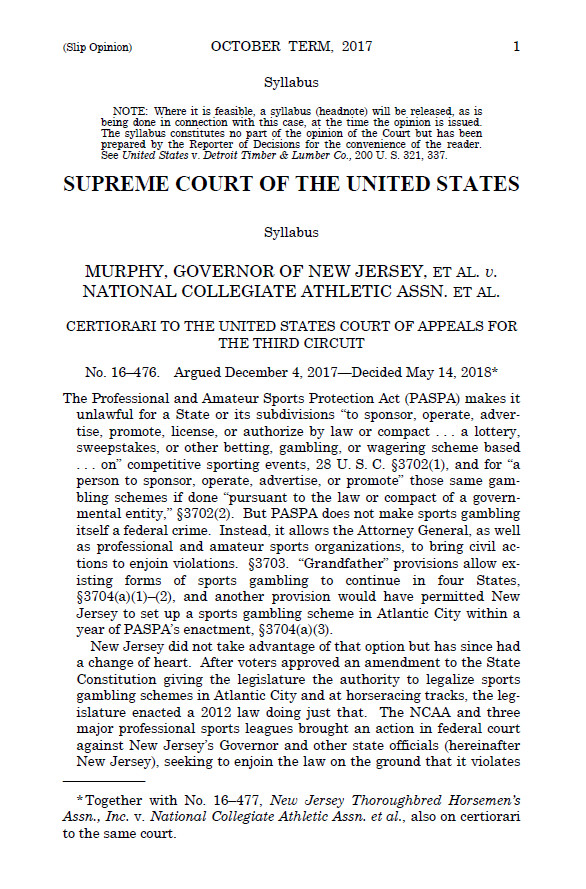Washington, DC…Following is the first few paragraphs of the opinion of the U.S. Supreme Court. JUSTICE ALITO delivered the opinion of the Court. The State of New Jersey wants to legalize sports gambling at casinos and horseracing tracks, but a federal law, the Professional and Amateur Sports Protection Act, generally makes it unlawful for a State to “authorize”sports gambling schemes. We must decide whether this provision is compatible with the system of “dual sovereignty” embodied in the Constitution. Americans have never been of one mind about gambling, and attitudes have swung back and forth. By the end of the 19th century, gambling was largely banned throughout the country, but beginning in the 1920s and 1930s, laws prohibiting gambling were gradually loosened.
Click Above For Court’s Opinion
New Jersey’s experience is illustrative. In 1897, New Jersey adopted a constitutional amendment that barred all gambling in the State. But during the Depression, the State permitted parimutuel betting on horse races as a way of increasing state revenue, and in 1953, churches and other nonprofit organizations were allowed to host bingo games. n 1970, New Jersey became the third State to run a state lottery, and within five years, 10 other States followed suit.
By the 1960s, Atlantic City, “once the most fashionable resort of the Atlantic Coast,” had fallen on hard times, and casino gambling came to be seen as a way to revitalize the city. In 1974, a referendum on statewide legalization failed,9 but two years later, voters approved a narrower measure allowing casino gambling in Atlantic City alone.




How about this question: Are re call petition booths allowed in county fairs in the state of California?